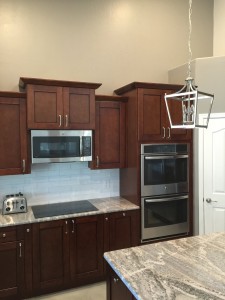Summer is a great time to take inventory of your home remodeling needs. Maybe hosting a BBQ showed how you could use more entertaining space, or maybe you were inspired to make some changes after visiting a cool hotel on a family trip.
Whatever the reason, going from inspiration to construction may seem like an impossible stretch. Don’t worry! We’re here to help with some of our favorite tips from a Washington Post article titled “What you need to know before hiring a home remodeler.”
First, have a goal. Think about what you really want to accomplish. If it’s a bathroom remodel, do you want more room? More storage? Will you stick to standard items or will you be OK with splurging a little? Are you more about function or style? Making a list helps!
Next, talk to a designer. A designer helps you visualize your goals and what it might cost. A rendering also allows you to make changes before construction begins. Designers also have experience helping with the decision-making process and can answer a lot of your questions.
Then, do your homework. Now equipped with your goals and a design, talk to possible candidates. Schedule an informational appointment, speak to former customers, and check out their website and social media channels.
Now, put it on paper. Sign a contract! This protects you and the contractor and aligns your expectations. Do not sign anything you aren’t sure about and feel free to seek clarification on matters large and small.
Lastly, don’t sweat the small stuff. Things will get messy. It is construction after all. It will pass. Unforeseen issues are likely to arise. They will pass too. If you’ve followed these steps to the best of your ability, it will all work out in the end, and you will have the home of your dreams.
Have a good week!



